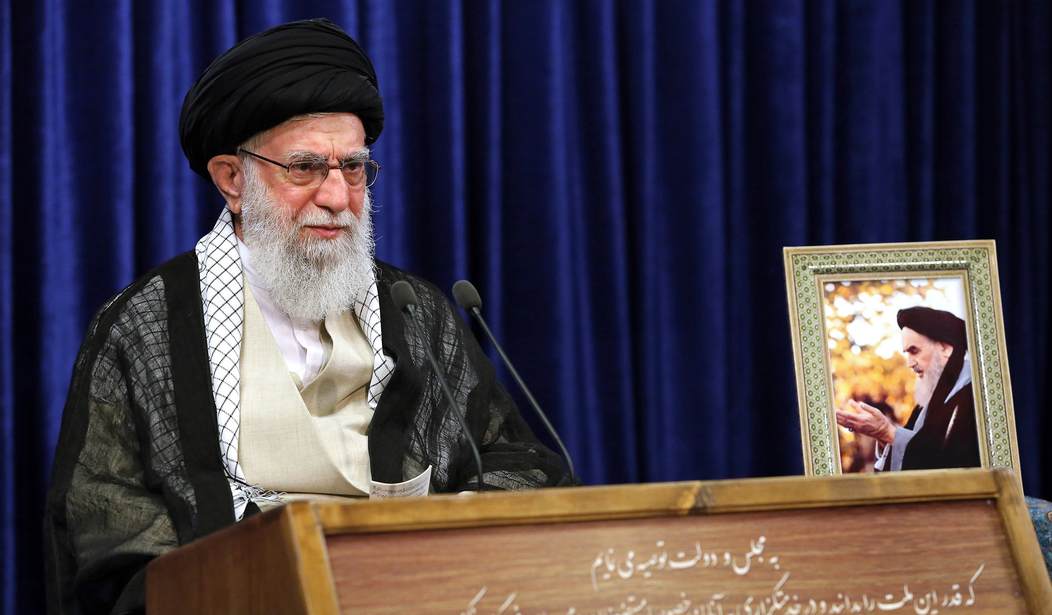The word “quietly” certainly applies to a lot of things the Biden administration has been doing lately. Without much fanfare, the United States pulled a number of anti-missile systems from several Middle East countries over the past month. The decision barely caused a ripple in news, but some members of Congress certainly noticed. The Patriot anti-missile systems were pulled from locations in Saudi Arabia, Jordan, Iraq, and Kuwait. They were all systems installed during the Trump administration, intended to act as a deterrent to Iran and defend our allies in the region. Now, Congressman Ryan Stell of Wisconsin wants to know if these actions were taken as additional concessions to Iran as a result of Biden’s secret negotiations with Tehran. It’s a good question, right? (Free Beacon)
A Republican congressman is pressing the Biden administration to brief Congress on its decision to remove U.S. military equipment from the Middle East amid concerns the decision was part of a series of concessions offered to Iran during ongoing nuclear discussions.
The Biden Defense Department ordered the removal last month of several U.S. anti-missile batteries installed across the Middle East, citing the diminished threat from Iran. At least eight Patriot anti-missile systems were erected in allied countries—including Saudi Arabia, Jordan, Iraq, and Kuwait—as part of the Trump administration’s bid to deter Iranian attacks.
Rep. Bryan Steil (R., Wis.), a member of the Republican Study Committee’s foreign affairs task force, is demanding the Biden administration brief Congress about its decision, which he worries could be part of an effort to appease Iran as nuclear talks stall in Vienna.
I’m hard-pressed to come up with any sort of plausible explanation there could be for removing those anti-missile batteries that didn’t involve concessions to Iran. The nations in question, with the possible exception of Iraq, weren’t forced at gunpoint to have the Patriot systems installed. They are all very nervous about the threat Iran poses to the region and had been asking for help. This is particularly true of Saudi Araba, a country where U.S. relations significantly improved during the Trump administration.
Of course, we don’t know for sure if this was done at the request of Iran because Biden isn’t answering any questions about the negotiations. Our “official” stance is that we don’t even talk to Iran except through third parties because of their repeated violations of previous agreements. There are obviously talks taking place, however, but neither the American people nor Congress is being included in what’s going on.
We learned last week that Biden agreed to unfreeze significant Iranian assets that were linked to Iran’s illicit oil trade. Then Iran’s Foreign Minister turned around and announced on state-run television that the United States has already agreed to lift a huge amount of the remaining sanctions. We have no way to confirm that claim, of course, but the White House has yet to deny it, so it seems like a fairly safe bet.
And what has Iran put on the table in return thus far? Absolutely nothing that the world has been informed of. If they’re making any promises, they’re doing so in private, so we have no way to hold them to it. What we do know they’ve been up to is launching a plot to kidnap an American journalist out of her home in New York City, which thankfully was broken up. They’ve also claimed to be ready to begin refining weapons-grade plutonium “any day now.”
Getting Iran back to the negotiating table was always a worthwhile ambition, assuming they could ever be trusted to honor their promises and allow IAEA inspectors back into their nuclear facilities with full access and transparency. But they aren’t even budging from their current position. This isn’t The Art of the Deal. It’s the art of the steal and we’re the ones being robbed blind.







Join the conversation as a VIP Member